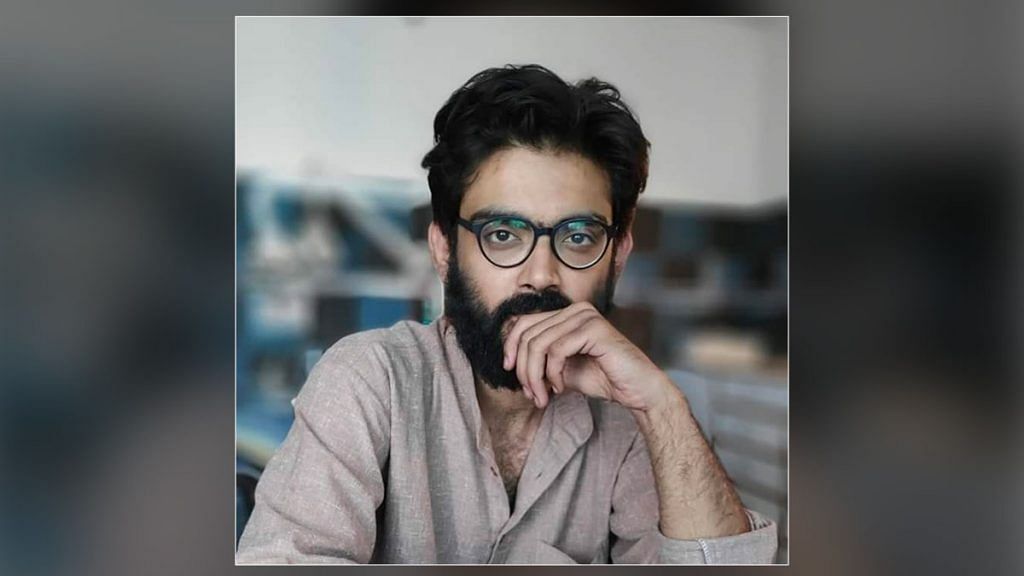New Delhi: The Delhi Police, in its charge sheet against Sharjeel Imam, said that the JNU scholar was “radicalised” by the books on Partition which he read for his MPhil thesis. The police said Imam, a 31-year-old PhD scholar, who was booked under the sedition law and the Unlawful Activities Prevention Act (UAPA), gathered knowledge on “collective violence” from the books he read for his thesis research.
According to the charge sheet, for his MPhil thesis — Exodus before Partition: The attack on Muslims of Bihar in 1946 — Imam read books by US political scientist Paul Richard Brass. Police said one of the books Imam referred to was Brass’ Forms of Collective violence, Riots, Pogroms, and Genocide in Modern India.
Imam’s arrest, however, is not the first example where literary works have been presented as evidence by the police or judiciary to frame charges against an accused.
Here is an account of books and authors who have been cited in connection with cases of violence, arrests and questioning by the police and courts.
Forms of Collective violence, Riots, Pogroms, and Genocide in Modern India by Paul Richard Brass
Brass, who has written numerous books on Indian politics, society and violence, is professor emeritus of Political Science at the University of Washington. He has been teaching at the university’s Henry M. Jackson School of International Studies since 1965. His books are based on his field visits to India since 1961.
In the book named in the charge sheet filed by the Delhi police, the 83-year old political scientist notes that most ‘communal violence’ and riots are organised and well-planned and are seldom spontaneous.
Why I Am A Hindu by Shashi Tharoor
The Delhi Police named another book in its charge sheet — Why I Am A Hindu — by Congress MP Shashi Tharoor. The police accused Imam of using the book to portray a “secular front”.
Leo Tolstoy’s War and Peace and War and Peace in Junglemahal: People, State and Maoists by Biswajit Roy
In August 2019, a controversy erupted after reports emerged that a Bombay High Court judge had questioned the presence of well known Russian author Leo Tolstoy’s classic War and Peace in the house of activist Vernon Gonsalves, an accused in the Elgar Parishad-Bhima Koregaon case.
Judge Sarang V. Kotwal, however, clarified that he was aware that War and Peace is a literary classic and that his comment did not refer to Tolstoy’s book, but another book — War and Peace in Junglemahal: People, State and Maoists — by Biswajit Roy, a Kolkata-based journalist. Kotwal had said that the title of the book in the list was not legible, so he referred only to the part that was readable.
Tolstoy’s War and Peace broadly focuses on Napoleon’s invasion of Russia in 1812, and is considered as one of his finest literary works.
Meanwhile, War and Peace in Junglemahal is a collection of essays by many authors with diverse views on Naxalism, the peace process and the role of the state.
Christophe Jaffrelot’s Hindu Nationalism
During the violence on the Jawaharlal Nehru University (JNU) campus in January this year, a PhD student claimed that Christophe Jaffrelot’s book Hindu Nationalism saved him from a mob.
The student, Rakesh Kumar Arya, said that when the mob broke into his room and asked if he could prove he was with the Akhil Bharatiya Vidyarthi Parishad (ABVP) — the RSS’ students union wing — he pointed to the book Hindu Nationalism, the subject of his PhD thesis.
One of my books helped a JNU student to save his life. I have never felt so useful, and so disturbed at the same time by the madness of today’s identity politics. https://t.co/UbJjIEhIFD
— Jaffrelot Christophe (@jaffrelotc) January 7, 2020
Jaffrelot is an eminent political scientist and writer, a professor of Indian Politics and Sociology at King’s India Institute, London, and a senior research fellow at CERI-Sciences Po/CNRS, Paris. He has been writing on the politics of South Asia for two decades. His literary works on India cover nationalism, democracy, caste politics, and ethnic conflicts.
In his book Hindu Nationalism, Jaffrelot doctrines the rise of the Hindu nationalist movement in India, how Hindutva came to being and political issues on which the movement took a distinct position.
The Communist Manifesto by Karl Marx
In December 2019, the NIA officials had reported seizure of a few books on communism, Marxism and socialism — such as The Communist Manifesto written in Assamese, Vladimir Lenin’s Selected Works, written in English, and titles related to Mao Zedong and Lenin — from the Krishak Mukti Sangram Samiti (KMSS) office. KMSS is a peasant organisation based in Assam formed by RTI activist Akhil Gogoi.
In January this year, the NIA had booked Gogoi and other activists — Bittu Sonowal, Dhairjya Konwar and Manas Konwar — on charges of sedition and under provisions of the UAPA for allegedly being overground workers of the banned CPI (Maoist) during anti-CAA protests in the state in December 2019.
English and Foreign Languages University (EFLU) professor K. Satyanarayana in 2018 claimed that the Pune police raided his house and questioned him over books with red covers or Marx written over them.
Satyanarayana is the son-in-law of Varavara Rao, an Indian activist and poet, who has been in jail since 2018 in connection with the Elgar Parishad case.
Koel Sen, daughter of Professor Shoma Sen, had said that the literary evidence collected from her mother’s house included Communist literature such as books by Marx and Lenin. Shoma is also one of the accused in the Elgar Parishad case.
Also read: Are you anti-national, seditious, or simply inconvenient? Your bookshelf holds the answer
